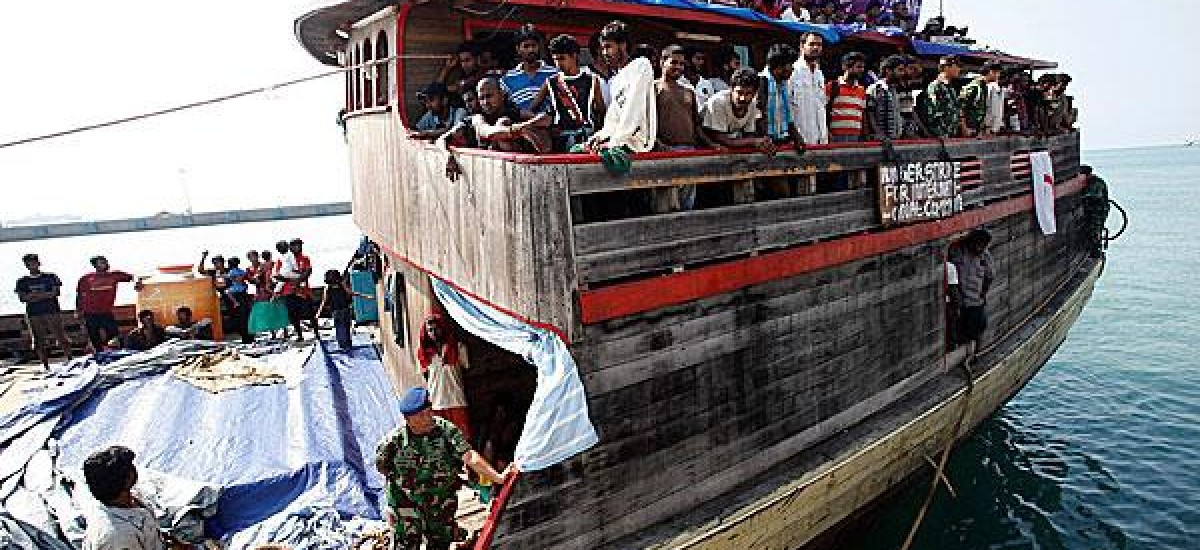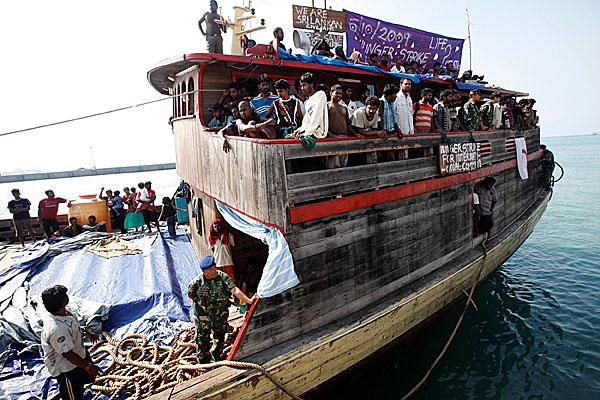Image courtesy Christian Science Monitor
This year’s Bishop Cyril Abeynaike Memorial Oration was a fascinating talk on some aspects of globalization by Dr. Harsha Athurupane. He spoke mostly of the benefits of globalization but also mentioned some possible ill effects. In an ideal globalized world, people, goods, services, knowledge, information and technology should move freely across of globe. But we do not live in such a world and probably never will, but there has been some movement towards globalization that may have accelerated in recent decades. This paper will focus on an aspect of globalization on which Dr. Athurupane did not focus – illicit human trafficking.
Given the considerable asymmetry of resources, correlated to political entities such as nation state and, to a less extent, regional entities such as the European Union, barriers to migration, and a measure of illicit human trafficking are inevitable. In the early decades after we gained independence, there was illicit migration of labor from India into our island. The labor migration was a continuation of what had been going on for over a century; what was new was that it was unlawful. We spent considerable resources to prevent it. After a few decades such illicit immigration dried up. It appears that Sri Lanka no longer attracts labor from overseas. In fact there is a steady stream of illicit movement of population out of Sri Lanka. This is mostly of North East Tamils to India, as well as those of several ethnicities but, again, mostly of North East Tamils to developed, preferably English speaking countries. Till recently the preferred destination, apart from India, was Canada; today it appears to be Australia.
There are good reasons to discourage and even prevent illicit emigration. Firstly, they may contribute to socio-economic problems in the recipient countries. Second, they contribute to a negative image of Sri Lanka. But, most important, those attempting emigration are wasting their resources or of those who are funding them. There is a good chance that they may be stopped after they have paid up but before they get out of our territorial boundaries. There is also good chance that they be detected before they reach their destination and be turned back. If they are travelling by boat it would be an uncomfortable and physically risky journey – several boats have met with accidents and many have drowned. Even if they do reach their destination they may be detected and turned back or kept in detention. Only a very small fraction of those who undertake such illicit emigration achieved their objective. Even in these cases the majority may not find gainful employment. To almost everyone concerned it is a bad bargain.
Compared to hundreds of horrendous crimes of which read about daily, illicit emigration is not a serious crime. The harm they cause is mostly to themselves or to those who have funded them. The villains are those who facilitate and profit from the illicit emigration of others. In the case of the illicit emigrants the question arises: what is their motivation? Have they understood the likely consequences and done their cost-benefit calculations? In one way or the other they are victims of war whose mental, social and economic conditions have not been eased by counseling and socio-economic rehabilitation, neither of which has been forthcoming. They could also be running away from appalling conditions in the North and East, which continue to be intolerable after more than four years since end of the war. The state has primary responsibility for remedying such conditions as well as providing counseling and rehabilitation for war victims. Civil society, local, national and international, NGOs, both religious and secular, can play supporting roles, but the initiative needs to come from the State. In any case most of those who resort to illicit emigration need help and should be treated not as criminals but as victims of war.


